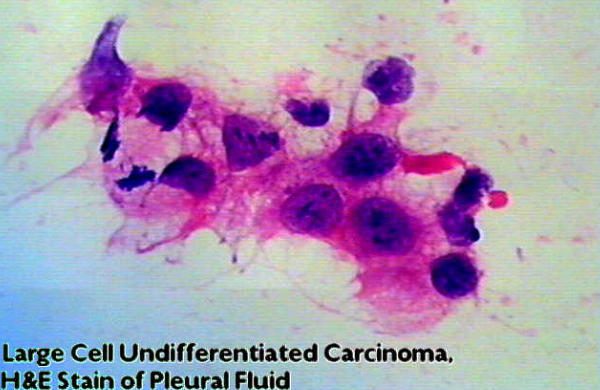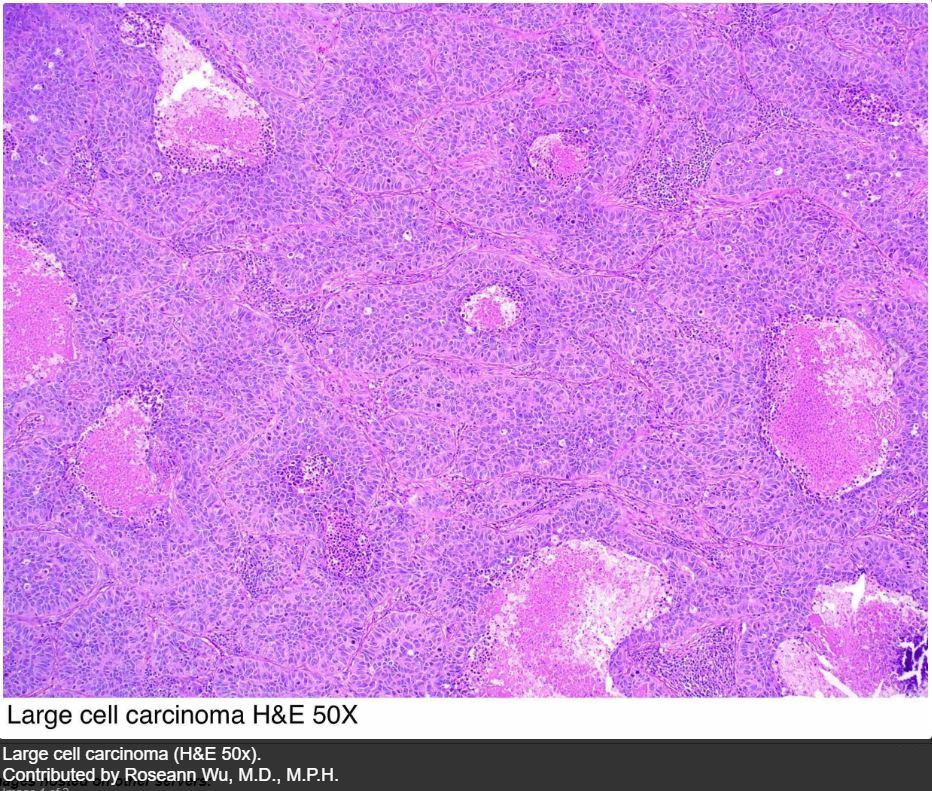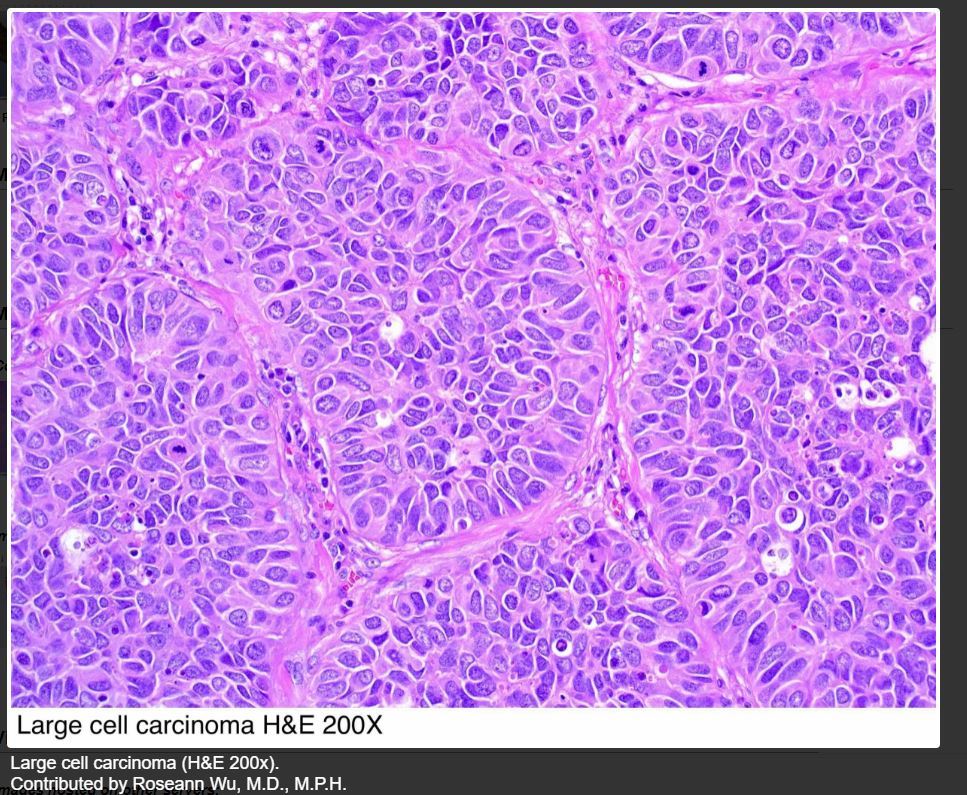Definition
Large cell carcinoma (aka large cell anaplastic) is a malignant disease of the epithelial lining of the airways and is the least common of the NSCLC and accounts for 10% of lung cancers. It is characterised by large, clear, undifferentiated sometimes heterogeneous cells.
Structurally it characterized by its peripheral location, highly atypical cells, without evidence of keratinization, nor glandular formation, but with areas of focal necrosis. Recent suggestions propose that the large cell carcinomas represent an undifferentiated form of adenocarcinoma.

Keywords
lung pulmonary bronchus bronchiole neoplasm malignant malignancy primary lung large cell undifferentiated carcinoma cytopathology

Note tumor cells with cytoplasmic clearing and lack of granular or squamous differentiation.
Courtesy Armando Fraire MD.
TheCommonVein.net
32815

Contributed by Dr Rosean Wu MD MPH from pathologyoutlines.com/

Contributed by Dr Rosean Wu MD MPH from pathologyoutlines.com/
Large Cell Carcinoma is an anaplastic carcinoma, with polygonal shaped cells that are large with vesicular nuclei. They may in fact be undifferentiated forms of adenocarcinoma or even squamous cell carcinoma. A few subcategories are recognized including giant cell, clear cell and spindle cell. Intracellular mucin is reminiscent of the adenocarcinoma origin.
